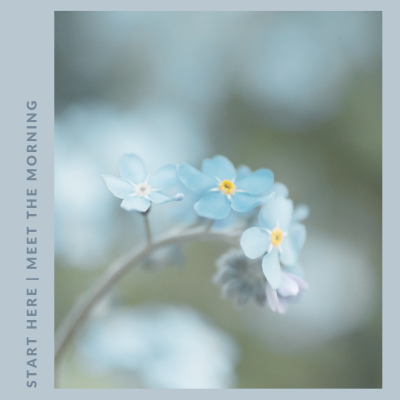How Grief After Baby Loss Shocked Me
Mary Hirsh
Before my son died, I never really suffered. I knew grief mainly from a distance. It wasn’t something I ever anticipated experiencing at this level, because bad things don’t happen to me, right?
Oh, how I mourn the naivety I had before.
When grief invaded my life in that hospital room I was so overwhelmed. Despite growing up with a strong faith background, my whole belief system came crumbling down around me.
But no amount of books, podcasts, sermons, or personal anecdotes could prepare me for the journey of mourning a child.
Here are a few things that shocked me most about grief:
The intensity of emotions: One of the most shocking aspects of grief is the intensity of emotions that can be experienced. The depth of sadness, anger, and despair can be overwhelming and can come in waves. I have never felt anything so deeply in my life, and I don’t have the words to accurately describe the intensity.
The physical symptoms: Grief can present itself in more ways than just crying. I experienced headaches, nausea, fatigue, muscle weakness, dizziness, and changes in appetite. My desire to eat and take care of myself didn’t return for months.
The unpredictability of grief: Grief does not follow a predictable timeline or pattern. It can come and go in waves, and can be triggered by the most unexpected events or memories. One minute you’re fine and the next you’re hyperventilating. Grief is like a roller coaster, and it is anything but linear. You don’t complete one stage of grief and then move on to the next until you’re healed. You may experience all the stages of grief in the same day, multiple times a day. Just because you moved on from feeling initial shock and numbness doesn’t mean it won’t resurface three months later.
The impact on daily life: Grief can have a significant impact on daily life, making it difficult to concentrate, sleep, or perform daily tasks. I was so shocked to notice the changes in my cognitive function. I’ve had several concussions, and that was the closest thing I can use to describe my inability to function in those early days. The ripple effect means it can also affect relationships and social interactions. I could not participate in any type of conversation at all.
The feelings of isolation: Despite the fact that grief is a universal experience, it felt like no one could possibly know what we are experiencing. This can make grief feel so lonely. It can be difficult to relate to others who have not experienced a similar loss, and it may feel like nobody truly understands.
The impact on identity: Losing a baby can fundamentally change a person's sense of self and purpose in life. I feel like a completely different person ever since my son died. In some ways for the better, but it’s still such a sudden, shocking change. Having the exact moment that I can point to where that transition took place feels so traumatic. I’ve had to mourn the person I was before because I will never be the same again.
The ongoing nature of grief: Grief does not end with a funeral or memorial service. It is an ongoing process that continues for a lifetime. It can sound daunting to say that grief lasts a lifetime. But when you consider that grief is just the way that you express love for your baby, it is easier to accept.
Grief can be a shocking and complex experience that can affect us in many different ways. Just like each loss is unique, each journey with grief is individual. It is important to recognize that mourning is a normal and natural response to loss, and that there is no right or wrong way to grieve. This reminder is especially important when we feel spoken or unspoken pressure to be doing better than we are. It is okay to be honest. It is okay to seek support and help from others, and to take the time and space needed to heal.
Ultimately, grief is a journey that requires patience, compassion, and self-care. It is important to be gentle with ourselves and to allow ourselves to feel the full range of emotions that come with loss. We can find hope in the fact that, even in the midst of our pain, God is with us, offering us comfort, strength, and the promise of a brighter tomorrow.
As the Apostle Paul writes in Romans 8:38-39, "For I am convinced that neither death nor life, neither angels nor demons, neither the present nor the future, nor any powers, neither height nor depth, nor anything else in all creation, will be able to separate us from the love of God that is in Christ Jesus our Lord." May we find comfort and hope in these words, and in the love of God that surrounds us always.
While grief can be a challenging and painful experience, it is also an opportunity for growth, healing, and transformation. As Christians, we can find hope and encouragement in the promise of eternal life and the love of God. We can take comfort in the fact that our babies are in the loving arms of God, and that we will one day be reunited with them in Heaven.
Meet the Author:
Mary Hirsh
Mary is a wife and mom to Josiah, who died during labor moments before he was born. Through this loss she has felt called to share her vulnerability and encourage others to live a Colossians 3 life by setting their minds on the things above. She writes on her blog, Sharing Sorrow, about baby loss, grief, faith, and life.
Connect with Author:
On Instagram @mary_hirsh
Website: sharingsorrow.com
free community
FIND WOMEN UNDERSTAND THIS NEW NORMAL AND WILL PROVIDE HOPE AND HELP AS YOU NAVIGATE YOUR WAY THROUGH IT.

































